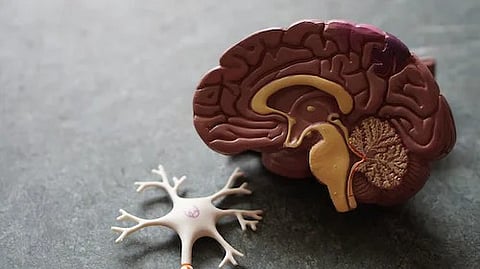The number of people suffering from Alzheimer’s in India is estimated to be between 5.3 million and 8.2 million, healthcare experts said.
World Alzheimer’s Day was observed on Thursday to raise awareness and educate people around the globe about Alzheimer’s and dementia. It is a chronic disease where brain and memory cells slowly start to lose thinking and the ability to carry out simplest tasks. The brain cells themselves degenerate and die, destroying memory and other important functions.
This year’s theme for Alzheimer’s Day is ‘Never too early, Never too late’, which focuses on identifying the factors that cause this disease and taking steps to reduce and prevent dementia. Organizations gather on this day so that they can better understand about this condition and generate more funds for research.
According to Ch Vijay, Consultant Neurologist, KIMS Icon, Vizag, Alzheimer’s disease usually occurs for people who are in their mid 60s, where their brain gets the most effected, resulting in such as memory loss, inability to be independent, poor judgment, loss of spontaneity etc.
Patients with dementia and Alzheimer’s experience pain, but with the help of a proper care system the pain can be manageable.
“Life expectancy for Alzheimer’s patients is around 8-10 years, which can be lesser when diagnosed in the 80s or 90s. It can extend till 15-20 years in some patients. Purple is the colour to raise awareness for Alzheimer’s. Oftentimes, Alzheimer’s is the most common cause of dementia.
In India, people with Alzheimer’s are possibly between 5.3 million to 8.2 million. Because of the usage of curcumin, a powerful anti-oxidant that possess anti-inflammatory properties which helps fight the disease, Indians have substantially managed the increase of Alzheimer’s but since 2005, it has grown more than dementia,” he said.
P. Sravanthi, Consultant Neurologist, SLG Hospitals, said, “There are many myths surrounding Alzheimer’s disease. It does not always happen to older people, most people get this disease in their 60’s but it is a chronic disease where there is a decline in thinking and the ability to carry out simplest tasks.
"About 5 per cent of people in their 30s, 40s and 50s get this disease as an early sign. Another myth about this disease is that it is not always an inevitable part of aging, it can take away someone’s ability to eat, talk and more. The medications that help with Alzheimer’s disease do not help with permanent cure of the disease as there is no current way to stop or slow the ailment. Medications might help with thinking, language, memory, skills and some behavioural problems.”
Talking about the tools that help doctors diagnose this disease, Subhangi Thakur Hameer, Consultant Neurologist, Amor Hospital, said that there are no specific blood tests available in India to determine Alzheimer’s disease.
Performing clinical assessment and a PET scan, CT or an MRI can help diagnose Alzheimer’s. Administrative psychological evaluation to determine whether the person is going through any symptoms such as depression or other related conditions that contribute to the person’s symptoms. People with these memory problems should return to the doctor every 6-12 months.


